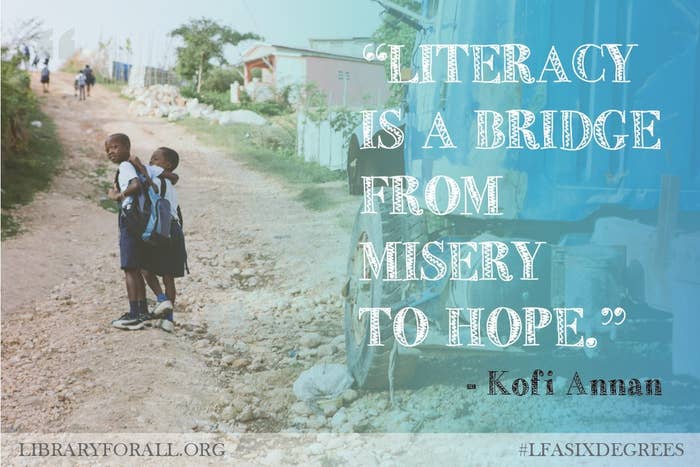As I step off the bus onto the streets of Accra, Ghana, I am immediately assaulted by the vibrancy of colors, piercing through the dust that rise in clouds as cars pass by our group of NYU students. My attention is only drawn away from the beauty, and stifling humidity—I literally feel like I am swimming—when I notice that there are mobile phones everywhere. I definitely did not expect to see such widespread use of technology.
It is only two years later that I would realize the significance of this observation.
But first, let's assess the global situation.
There are 650 million primary school-aged children in the world. A whopping 250 million don't learn basic arithmetic, reading, and writing skills (1. UNESCO). This means that more than a THIRD of all the primary school-aged children in the world don't learn to read. If they can't read or write, how will they learn and gain knowledge to lift themselves out of poverty? How can they dream and imagine and be creative?
According to the United Nations Educational, Scientific and Cultural Organization (UNESCO), if all students in low-income countries left school with basic reading skills, 171 million people could be lifted out of poverty. Obviously, this would leave a serious dent in world poverty.
But why is it that even though over half of these 250 million children are attending school, they are still illiterate? It's because schools in developing countries don't have access to knowledge and books. When I volunteered in Ghana, the books were kept in a single room, and students could not freely check them out or take them home. In Haiti, after the earthquake in 2010, even the schools that did have books would lock them away because they were so precious. Imagine growing up without a public or school library. Remember those research projects you did in school? Tedious as they were, how would you learn about the world without educational resources? What if you couldn't just Google something on your phone or computer?

Now, imagine a digital library in the cloud, accessible from a mobile phone, computer, or tablet. Library For All is a nonprofit organization that is building that library. Using the 3G networks that are now all across the world, Library For All delivers ebooks that are tiny file sizes through a free Library platform to students in developing countries. The library will be updated as content is added, and there is no need for the costly and time-consuming process of shipping donated books, which many of us don't realize are often in the wrong language and not culturally relevant. The app is also designed to work offline, so that when connections cut out, students can still read and learn.
Test the Six Degrees of Separation theory
To raise the funds for its Phase 2 implementation after having run a successful pilot program for 530 students—who have nearly mastered the use of the library after 7 months—Library For All launched an innovative campaign called Six Degrees of Education. The campaign tests the theory of, you guessed it, six degrees of separation, and aims to reach 17 carefully selected funders and influencers to accelerate the organization's progress. People like George Lucas, who has pledged half of his fortune, after selling the Star Wars franchise, to education charities, would readily support Library For All because its solution is so innovative, in spite of—or because of—its simplicity.

Library For All is sending out a parcel for each key individual or "Keylister," containing an adorable bookworm (above) carrying a book with a video message. The message invites each Keylister to meet and accelerate a solution that aims to bring books to 5 million students within just 5 years. Just imagine. 5 million children, and the joy and wonder these books would bring to them and the world. Imagine each of these children going forth in their lives, armed with the tools to dream and aspire to change their own communities for the better. According to the UN Educational, Scientific and Cultural Organization (UNESCO) Education For All (EFA) Report, this means that there is $10 economic growth for every $1 spent on education.
Take action!
You can participate in the campaign by sharing this post on Twitter and Facebook and use tags @LibraryForAll and #LFAsixdegrees so that the key individuals see how simple yet doable Library For All's solution is.
This list includes: George Lucas, Laura Bush, Nandan Nilekani, Sheryl Sandberg, Carlos Slim, Pam & Pierre Omidyar, and Queen Rania of Jordan. Let's get their attention!

